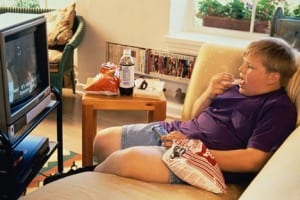
From a personal experience I know how hard it can be to feed a fussy eater, being one myself I can honestly say that meal times when I was a child were anightmare for my parents. For me it began when I started school at 4 years old, as my Mum likes to constantly remind me, “It all just went downhill from there!” I went from eating everything, to literally nothing! (Thankfully I am slowly growing out of it).
I have spoken to numerous parents that are either currently dealing with a child that is a fussy eater, or have already being through and dealt with the frustra-on that comes with a fussy eating child: Samantha Anddison and Gemma King are parents that are currently dealing with children who are fussy eaters. And Yvonne Jones (my dearest Mother) and Helen Dean have the wisdom and prior knowledge of tried and tested methods for dealing with a fussy eater.
Many studies have shown a connection between everything from a child’s environment, to the texture of the food, but from talking to Helen and Yvonne they both seem to think that it doesn’t matter what the cause is for most children as, “you still deal with it all the same way…” says Yvonne, “…you will still spend hours at the dinner table, and you still have the same argument over and over again with your child…’ says Helen. So, if this is true why has there been an increase in the amount of parents taking their children to see the Doctor with the same or similar eating habits that generations of parents have been dealing with?
Samantha stated, ‘I took my youngest because suddenly it became so difficult for him to eat anything. I was lucky if he would eat anything other than white bread and walkers cheese and onion crisps.’ I have spoken to Dr Eddison, a GP from Doncasterwho owns his own surgery called ‘The Village Practise he said, ‘Unless the child has a diagnosable eating disorder or is starving themselves, I suggest carrying on eating as normal. Keep making them food like you do with the rest of the family, most children will give in and eat when they are hungry, unless there are any underlying psychological issues.’ This backs up the same ideas of Helen and Yvonne, suggesting that perseverance is the right way forward.
However, it isn’t always thatsimple, it can put strain on families and even cause parents to feel guilty and blame themselves for their children’s eating habits.Listening to Gemma and the other women has made me look at having a child who is a fussy eater in a different way, maybe focusing more on the effects it is having on the families rather than the children themselves.Checking parents are coping, and siblings aren’t feeling left out or isolated from their parents, as all the information on that has been given and researched seems to suggest that children tend to grow out of being a fussyeater.
Dr Eddison also suggested this, “What I say to most parents dealing with children that have problems with food, is to watch the strain it can have on the rest of the family, like siblings. As for most children it is a phase they are going through, their way of rebelling’ I asked Helen and Yvonne, ‘If you could give a parent who is going through the issue of having a child who is a fussy eater, one piece of advice what would it be?’ It took Yvonne a while to narrow down her choice in advice, ‘Don’t do it alone. Talk to your partner/husband etc., as they will be feeling the exact same way as you frustrated, angry and guilty!’ and Helen said ‘I suppose, don’t worry that you’re a bad parent. I kept thinking it was my fault that it was all down to me being a single parent and my daughter not seeing her dad.’ Two pieces of great advice that Dr Eddison agreed with, ‘Both are good, but we are here to help if things do get too much for families. So don’t hesitate if it has got too much.’ If you have anymore questions please don’t hesitate to email, also check out this website for more information
h.p://www.netmums.com/,


